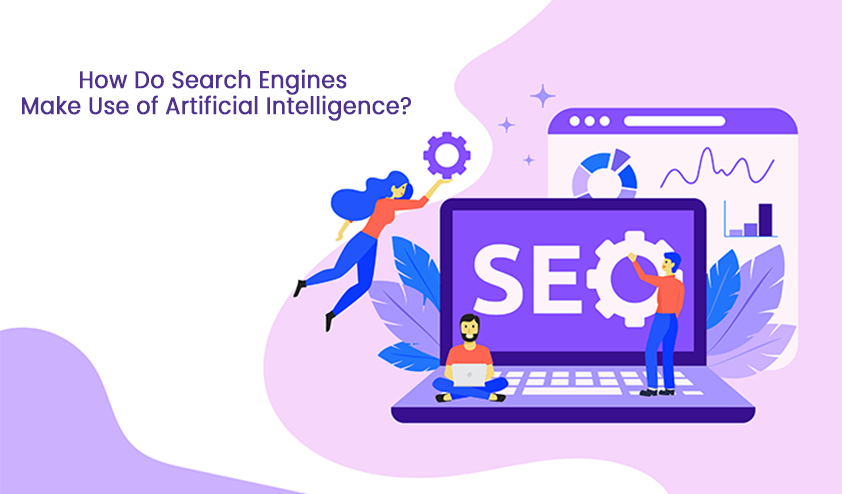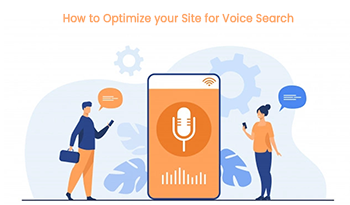How do search engines make use of Artificial intelligence?
The power of search engines is astonishing. You go to your favorite and enter in a few search terms. The search engine then magically searches the entire internet for the best relevant result. Except, of course, it isn't magic.
It's algorithms and a slew of excellent ideas from a variety of folks.
And it's made us wonder:
How much do search engines use artificial intelligence and machine learning, given all of the bright minds behind them?
#1 What is Artificial intelligence (AI) in terms of search?
The process of making machines intelligent is known as artificial intelligence. Without direct human supervision, teaching, or rules, machine learning algorithms can learn on their own.
As a result, AI is highly beneficial in various commercial applications, ranging from smartphones to self-driving cars. It also has an impact on how search engines work.
That's because today's search is too complicated for a machine to perform without human supervision. With tens of thousands of searches every second, AI is required to comprehend queries, rank results, and filter information at scale in real-time.
It accomplishes this by taking human-taught principles and learnings and applying them autonomously to power your modern search engine. In reality, today's search engines all use AI to some extent.
#2 What is the role of AI in search engines?
#1 Rankings in search
The most common application of AI in search engines is to rank web pages, videos, and other content in search results. Complex search algorithms are used by Google (and other search engines) to decide how the material is ranked. These algorithms include several rules that emphasize various factors, ranging from the types of keywords in your content to the user experience on your site. These parameters work together to assist Google's artificial intelligence figure out which pages to serve in response to your search query. While Google provides guidelines on what is essential to its algorithms, no one outside the business has complete visibility into making judgments.
#2 Recognizing search terms
Although search engines are computer programs, they must comprehend human language to provide users with the information they seek. To put it another way, search engines need to grasp what you're asking in the first place before they can show you the right content. That's a classic example of natural language processing (NLP), a branch of artificial intelligence that teaches computers to comprehend our written language.
Both Google and Microsoft use NLP to understand their users better. Yandex, the world's fourth-largest search engine, was studied by the University of Washington, and it was discovered that it had some advanced NLP and machine learning applications.
Developers at Yandex discovered that they could leverage all of their users' previous searches to optimize future results. As a result, they raised the click-through rate by roughly 10% by producing these tailored search results.
According to Search Engine Journal, Google search employs some of the same techniques by refining search engine results based on recent past inquiries and allowing users to conduct searches using only a photo (which uses another field of artificial intelligence).
Today, Google has made a few significant strides in its comprehension of search queries. First, the company's search engine now understands whole sentences thanks to its pre-trained language model BERT. That means BERT can comprehend a search's context as well as its keywords.
#3 Controlling the quality
Specific SEO "specialists" used dubious tactics known as "black hat SEO strategies" to beat the system back in the day. The list continues on and on, with aggressive keyword stuffing, cloaking, invisible text, and so on. Whatever method they used, they had one goal in mind: to game every single search engine results page (SERP) they could.
Of course, this wasn't good for search engines because the pages at the top of their rankings weren't always the best-quality information. They've changed their algorithms and are now using artificial intelligence to filter high-quality content from low-quality spam.
#4 Image and voice searches are both available.
AI has enabled newer search capabilities such as voice and picture search.AI technologies such as natural language processing (NLP) have progressed to the point where they can now interpret human speech in real-time, such as when using Google Assistant. These AI-driven systems can recognize your words and translate them into search results.
The same is true of photos. Image recognition AI systems can determine what is depicted in an image and then give relevant search results based on that image.
#3 What does AI-assisted search imply for SEO?
The primary concern for marketers is how AI will affect how we optimize for SEO. It's pretty straightforward. People utilize search engines to discover what they're seeking for. With machine learning, they'll be able to pinpoint exactly what they're looking for. That's fantastic news for marketers since it implies the most relevant, high-quality content will triumph.
Selecting the proper keywords and adhering to the best SEO techniques will continue to be crucial, but as search engines get more sophisticated, relevancy and quality of content will become the most significant ranking criteria.
As AI-powered search engines amass more data, they improve their ability to deliver results. It isn't to say that you should try to fool the algorithm. No one will ever know exactly what goes into a search engine's AI system.
But it does imply the following:
Search engines optimize on a straightforward factor. They want users to utilize their search engine the most and as frequently as possible. To do so, they must deliver the finest possible outcome. Users will go elsewhere if they don't. Like brands and people, search engines have a reputation to uphold. So, they don't want to accept low-quality outcomes.















